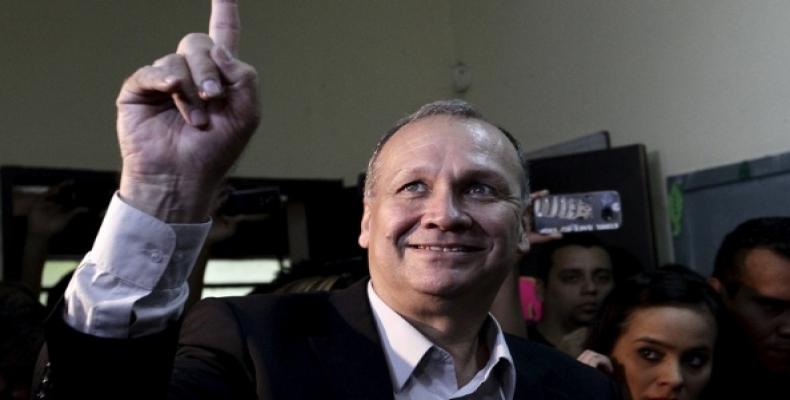Asunción, November 16 (teleSUR-RHC)-- Mario Ferreiro, of the Febrerista Revolutionary Party and the Together We Can alliance, won the Asunción mayoral race with 100 percent of the votes counted, beating his closest challenger by more than 10 points.
With Ferreiro’s victory, Asunción could see a political shift that could also signal popular will for broader change when the presidential race comes around again in 2018. Ferreiro unsuccessfully ran for president in 2013 with the center-left coalition Forward Country.
Polls were open in Paraguay's municipal elections on Sunday. Nearly 4 million voters were eligible to cast their vote for mayors and council members in 250 districts across Paraguay’s 17 states, as well as the capital district Asunción. Participation in Asunción was at roughly 55 percent.
The vote count began shortly after polls closed at 5 p.m., local time. Voters chose between candidates from the country’s three main political parties: the ruling Colorado Party, the Liberals, and the Together We Can Alliance.
Several exit polls, released as the voting stations were closing, showed the incumbent Colorado Party mayor Arnaldo Samaniego several points ahead of Ferreiro, despite the final results. Leading up to the elections, polls showed Ferreiro maintaining a healthy lead over Samaniego in Asunción.
The ruling Colorado Party has been the subject of intense criticism over its increasingly unpopular conservative policies.
In the weeks leading up to the Sunday’s elections, students, teachers, medical staff, campesinos, indigenous people, and transport workers have protested the lack of government support for public institutions and even demanded the president’s resignation.
Sunday’s vote was the country’s first elections since the victory of Paraguay’s current president Horacio Cartes, whose approval ratings have plummeted since coming to office two years ago.
Regional electoral observation missions from the Union of South American Nations, UNASUR, as well as the Organization of American States, the OAS, monitored polling stations and vote counting throughout the country.
The election was the first time the country offered special support for voters who are deaf, blind, or illiterate, marking an important step toward eliminating inequality in the democratic process.
It was also the first election that included voting in the indigenous Guarani language, spoken by 95 percent of the population. Though many Paraguayans speak both Spanish and Guarani, a significant portion of the population only communicates in the indigenous language.
But the advances in equality with respect to voting accessibility hardly scratched the surface of Paraguay’s larger social and economic problems, including poverty, weak institutions, and vastly unequal land distribution.
Last September, Latinobarometro, a Santiago-based research organization, released a poll, which showed that only 14 percent of Paraguayans considered their country to be progressing.


